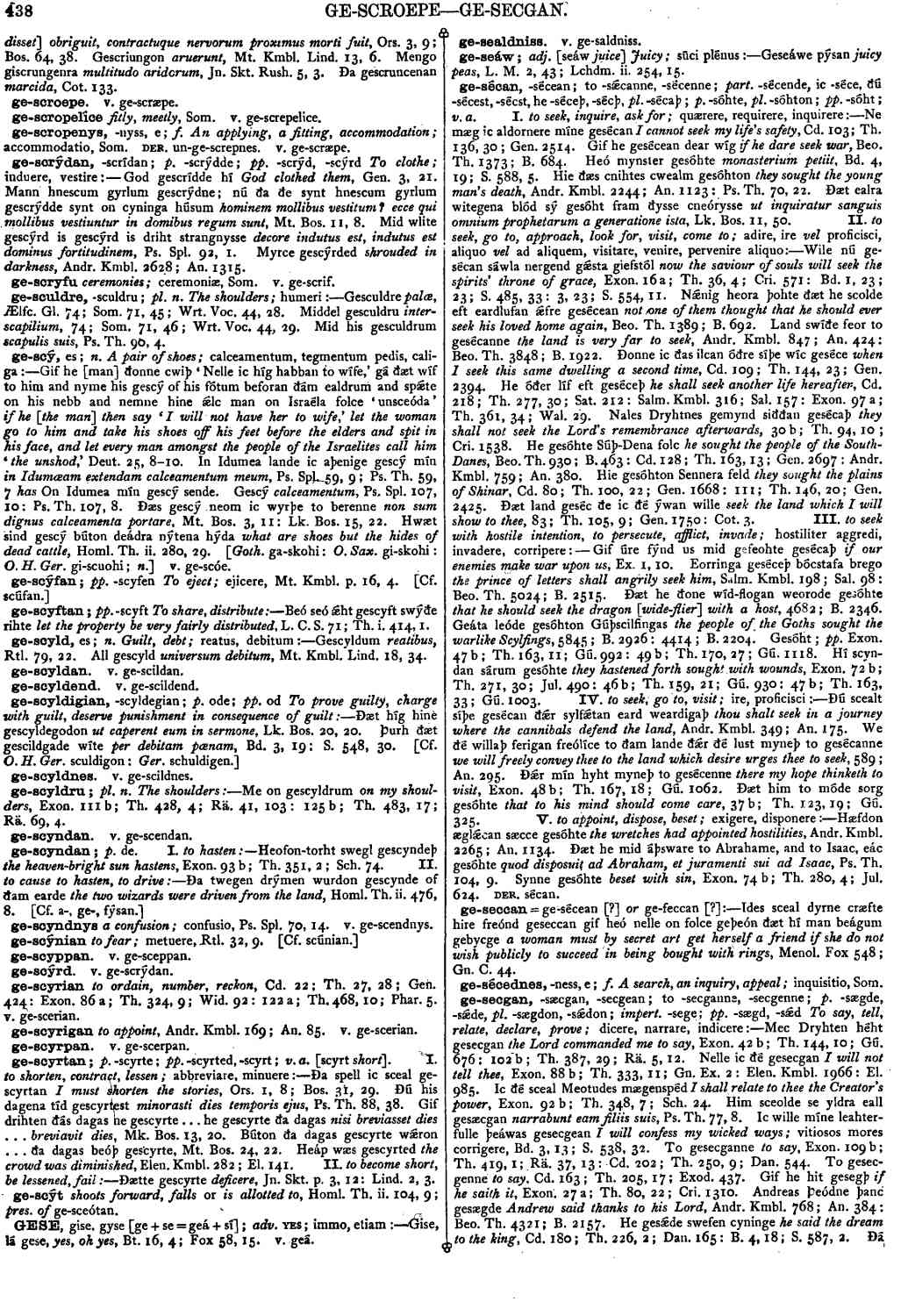ge-scý
- noun [ neuter ]
-
Gif he [man] ðonne cwiþ 'Nelle ic híg habban to wífe,' gá ðæt wíf to him and nyme his gescý of his fótum beforan ðám ealdrum and spǽte on his nebb and nemne hine ǽlc man on Israéla folce ' unsceóda'
if he [the man] then say 'I will not have her to wife,' let the woman go to him and take his shoes off his feet before the elders and spit in his face, and let every man amongst the people of the Israelites call him 'the unshod,'
- Deut. 25, 8-10.
-
In Idumea lande ic aþenige gescý mín in Idumæam extendam calceamentum meum, Ps. Spl. 59, 9; Ps. Th. 59, 7 has On Idumea mín gescý sende. Gescý
calceamentum,
- Ps. Spl. 107, 10: Ps. Th. 107, 8.
-
Ðæs gescý neom ic wyrþe to berenne
non sum dignus calceamenta portare,
- Mt. Bos. 3, 11: Lk. Bos. 15, 22.
-
Hwæt sind gescý búton deádra nýtena hýda
what are shoes but the hides of dead cattle,
- Homl. Th. ii. 280, 29.
Bosworth, Joseph. “ge-scý.” In An Anglo-Saxon Dictionary Online, edited by Thomas Northcote Toller, Christ Sean, and Ondřej Tichy. Prague: Faculty of Arts, Charles University, 2014. https://bosworthtoller.com/15920.
Checked: 0